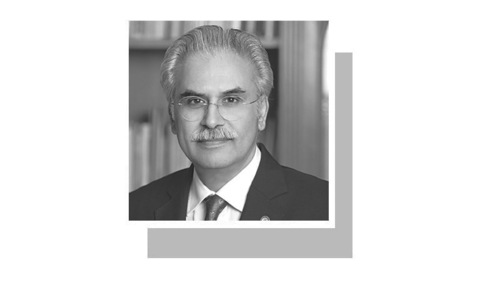GENERAL practitioners or family physicians are a great resource in any healthcare system. They are mostly the first point of contact. They understand people, their health and their lives as they are close to them. The terms ‘GPs’ and ‘FPs’ are used interchangeably.
Primary healthcare in Pakistan, in the public sector, is provided by Lady Health Workers and first-level PHC facilities, ie, Basic Health Units and Rural Health Centres. In the private sector, the bulk of healthcare is provided by GPs.
However, many patients in both the public and private sector go straight to the outpatient departments of big hospitals. One reason for the overcrowding of the hospitals is that our PHC is very weak. No country has been able to improve its health indicators without strong PHC.
Out-of-pocket health expenditures in Pakistan hover around 60 per cent and hence the importance of the private health sector. Within the private sector, GPs are critical.
However, GPs have been left on their own. They are not part of any national health policy. They are not even regulated properly as there are no defined services nor are there any defined quality standards for them. Healthcare commissions are still in their infancy.
GPs are not part of any health policy in Pakistan.
Who is a GP in Pakistan? A medical graduate with five years of medical education and a one-year house job (residential hospital training) and registration with the Pakistan Medical Dental Council can open a clinic anywhere and start practising without any requirement of continued medical education and hardly any accountability.
This makes it six years of medical education and training. To understand it better, a GP in the UK’s state-funded National Health Service has at least 11 years of medical education and training, ie, six years of medical graduation, two years of foundation training and three years of post-graduation in family medicine. Yes, a GP cannot be a GP in NHS without being a specialist in family medicine, and yes, family medicine is a specialty on its own.
Almost the same system of GP training applies in Australia, the US, Canada, Hong Kong (China) and most other high-income countries. Malaysia has recently and successfully upgraded its GP training bringing it at par with Australia’s. Many low- and middle-income countries, like Pakistan, are continuing with a low level of training for GPs, which ultimately results in low-quality healthcare and health outcomes.
Studies have shown many flaws in GP practice. Take the example of high blood pressure, one of the common high-risk factors for cardiovascular and other systemic diseases in Pakistan.
In a published study by Tazeen H. Jaffer et al, the group studied 1,000 randomly selected GPs in a cross-sectional survey and published the results under the title of General practitioners’ approach to hypertension in urban Pakistan: disturbing trends in practice. These GPs were seeing on average 48 patients per day — in a non-stop eight-hour practice this means one patient every 10 minutes. Most of these GPs had been practising for more than 10 years.
The study found that 31pc of GPs were using incorrect blood pressure cut-off points to diagnose hypertension among patients below the age of 60 years, and that 80pc of them were wrongly diagnosing hypertension among patients who were more than 60 years of age.
Only 4pc of GPs were using time-tested, cheap and effective anti-hypertensive medicines, called thiazide diuretics, whereas 45pc of them were using relatively expensive antihypertensive agents as first-line medication, and 69pc were using even more expensive sublingual antihypertensive agents for treating ‘high blood pressure’.
The diagnostic and prescribing practices of fresh graduates from medical school were not found to be any better than those of the older graduates.
This is just an example of the absence or lack of adherence to a simple clinical standard to diagnose a high-risk factor, hypertension, which if missed at an earlier stage may eventually cause heart failure or other serious and advanced medical complications. This example can be extrapolated to many other risk factors and diseases.
Although post-graduation in family medicine is available in Pakistan, it is not one of the sought-after medical specialties. Doctors don’t see much advantage in specialising in family medicine as there is no recognition and no incentives either in the public or the private sector.
Unless there is a clear policy about recognising the critical role of GPs in strengthening PHC in the country and supporting and incentivising them towards post-graduation, the great potential of GPs will not be realised.
One way of bringing GPs into the loop of national health service is to extend health insurance to the PHC level. Instead of providing financial protection to the rich for hospital admission through universalising the existing health insurance system, the latter needs to be directed at the poor and vulnerable at the PHC level through GPs. This will go a long way in strengthening PHC through GPs, who should also be involved in preventive, promotive and rehabilitative healthcare.
Recognising the importance of well-trained GPs, WHO is now supporting countries for shorter trainings in the form of diplomas for existing GPs, which is a step in the right direction. In Pakistan, a number of medical institutions are now offering such diplomas.
At the same time, there is a need for strengthening the discipline of family medicine and encouraging young doctors to undertake proper post-graduation in family medicine through various membership and fellowship programmes.
With the kind of public health crisis we have in the country, we need to pay focused policy attention to primary healthcare and GPs, and we need to learn from the experience of countries with well-developed healthcare systems.
The writer is a former SAPM on health, professor of health systems at Shifa Tameer-i-Millat University and WHO adviser on UHC
zedefar@gmail.com
Published in Dawn, May 5th, 2023















































Dear visitor, the comments section is undergoing an overhaul and will return soon.